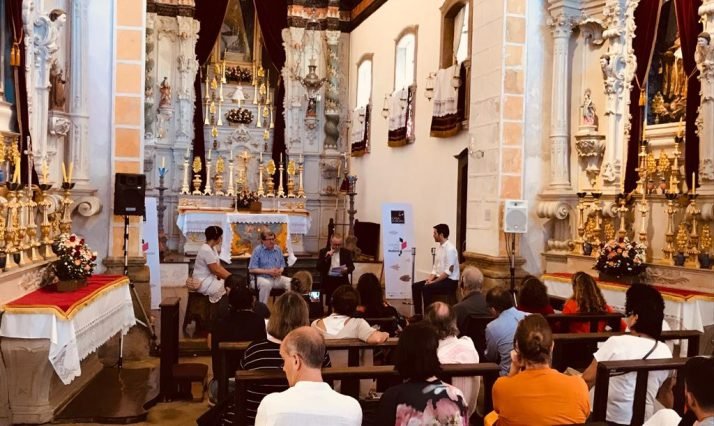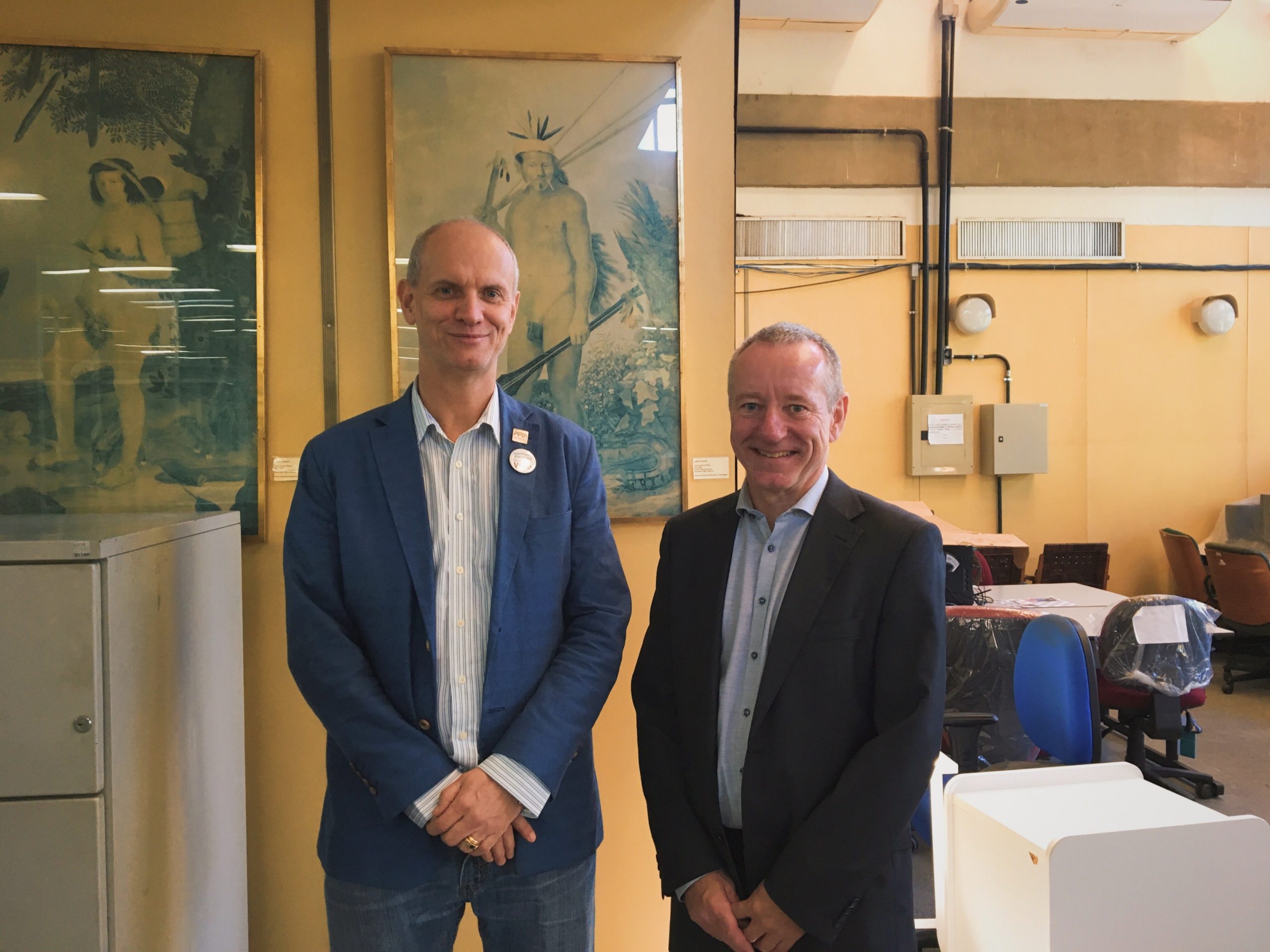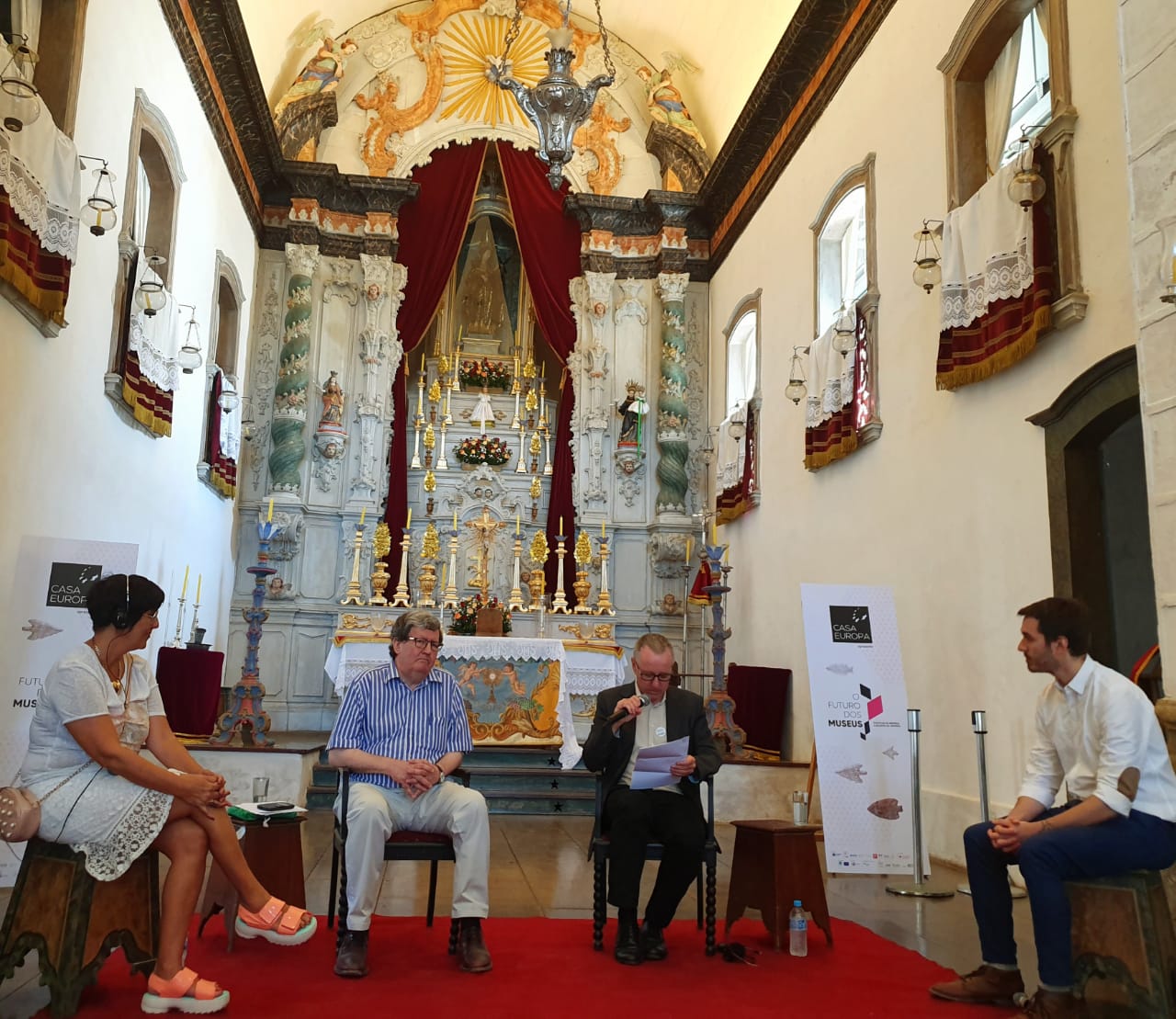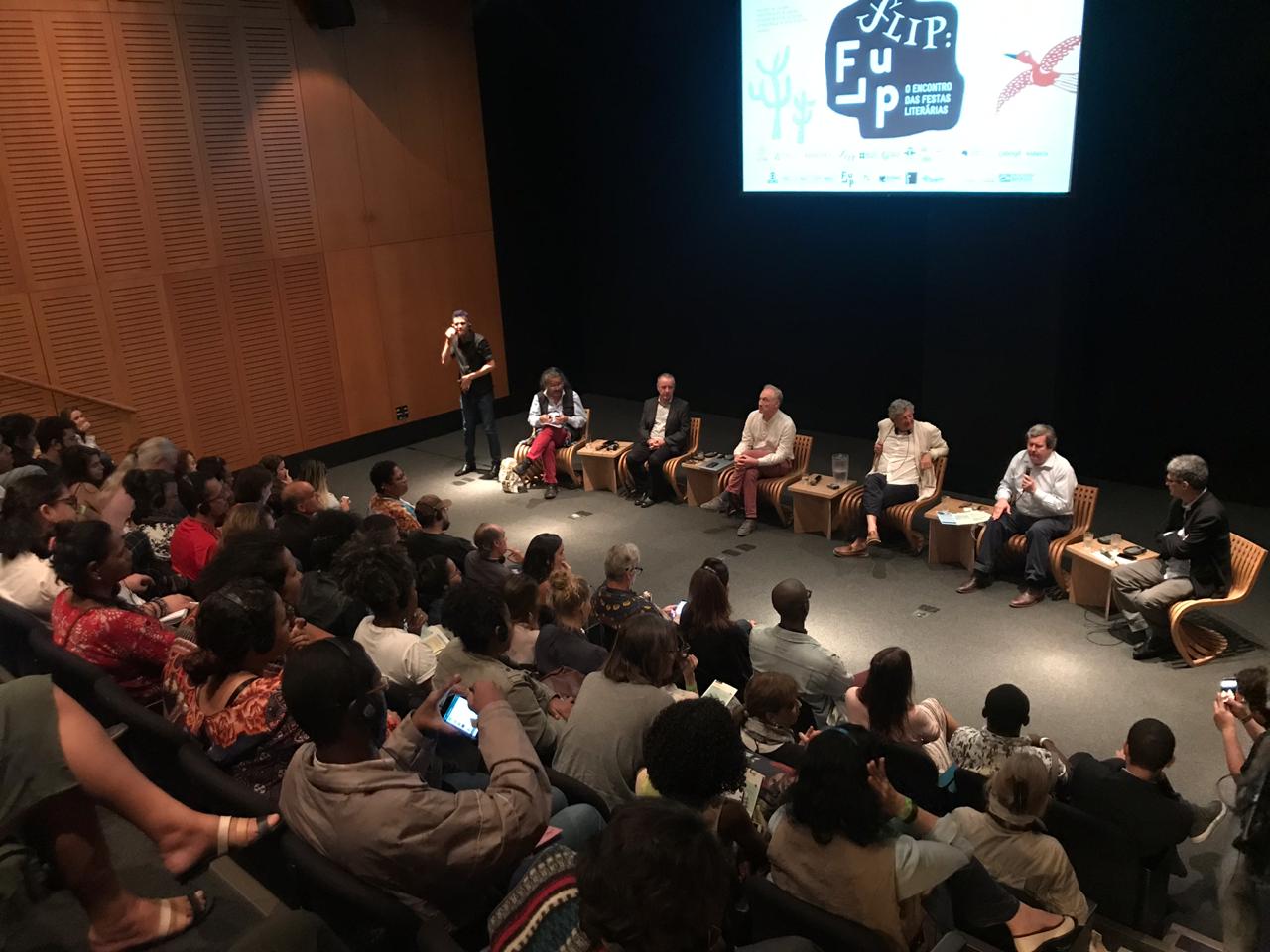Jesper Stub Johnsen at Casa Europa FLIP

The deputy director of The National Museum of Denmark, Jesper Stub Johnsen, visits Brazil to attend the literature festivals FLIP and FLUP, and to meet up with the director of The National Museum of Brazil, Alexander Kellner.
Besides being deputy director of the National Museum of Denmark, Jesper Stub Johnsen is also the museum’s researcher, collection and conservation director. He started his visit in Rio de Janeiro at the Museu Nacional da Quinta da Boa Vista. There, he had the opportunity to speak with the director Alexander Kellner and other staff members to exchange experiences and to get to know a bit more about the tragic fire that destroyed the museum at the end of last year (2018). According to Kellner, the best way to help are through donations to the collection that will support the new exhibitions. Then, Johnsen had the opportunity to visit the rescue and conservation area, which is responsible for cleaning, categorizing and organizing all pieces that are found in the ruins of the museum. He was very pleased to see everybody working in this arduous process with such a curiosity and optimism. Click on the link below to watch a small interview with Jesper Stub Johnsen about his visit to the museum: Jesper Stub Johnsen at Museu Nacional da Quinta da Boa Vista.

Then Jesper travelled to Paraty, to take part in FLIP – Literary Festival of Paraty on Casa Europa. The purpose for Casa Europa, produced by EUNIC Brasil, was to create a space for professionals with specialty in Cultural Heritage and FLIP participants to engage in multiple dialogs about the handling of the past in the present, in search of possible future solutions, considering the recent incidents in the field of cultural heritage and world history.
Friday morning, July 12th, Jesper took part in a debate panel about the future of the museums and its relevance in society, along with Juan Manuel Bonet (Spain), writer and art critic specialized in Brazilian culture. In his speech, Jesper added several relevant points to the discussion, explaining profoundly how museums come to be, what role they should have in the contemporaneous society and what is left when a museum becomes ruins.
FLIP Is a big annual festival, which gathers national and international intellectuals and a huge audience to talk about relevant issues, always having literature as focus. This year, in its 17th edition, the honored author was Euclides da Cunha,
The main event had an audience of 8,600. Casa Europe (House of Europe) is one of many ‘houses’ at FLIP, which have their own parallel agenda. You can have a look at them here.

The week after, on July 15th, there was FLUP – Literary Festival of the Suburbs at MAR (Museu de Arte do Rio). At the opening panel, Jesper talked about the civilizing problematic of how museums have been preventing a reflection process of what its narratives hide; at what cost – social, cultural, etc. – the exhibitions are built. The participants of the table were:
Antonio Forcellino – architect, writer and restorer, Italy;
Juan Manuel Bonet – Arts critic, specialized in Brazilian culture, Spain;
Jesper Stub Johnsen – Research, collections and conservation director of the National Museum of Denmark;
Mario Chagas – Museum of Republic’s director, @um dos idealizadores do IBRAM, membro do Museu das Remoções, Brasil;
Benoît de L’Estoile – writer and researcher of CNRS and IRIS, France;
Mediation: Evandro Salles, director of MAR.
Founded by Ecio Salles and Julio Ludemir, FLUP was created in 2012 with the purpose to be a formation space of new readers and writes of the suburbs of big Brazilian cities. It starts its activities in May, with a sequence of meetings that extends until September. In 2012, FLUP got the award for “Make a Difference” (O Globo); in 2016, the Excellence Awards (London Book Fair); Retratos da Leitura (Instituto Pró-Livro). This year’s theme was “Art, action and anticolonial thinking”. The festival brought together many professionals of various areas to discuss issues within this theme. You can check out the complete agenda here.
